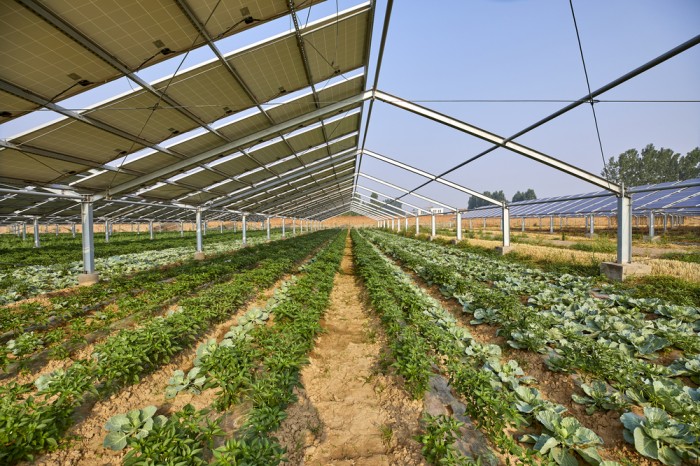In recent years, the integration of solar energy into agricultural practices has gained significant traction worldwide. The agriculture solar system, a technology that harnesses sunlight to power farm operations, is increasingly being recognized for its potential to revolutionize farming practices. This article provides a thorough analysis of the costs and benefits associated with agriculture solar system, shedding light on their implications for farmers and the environment.
Understanding Agriculture Solar Systems
Before delving into the costs and benefits, it’s essential to grasp the fundamentals of agriculture solar systems. These systems utilize photovoltaic (PV) panels to convert sunlight into electricity, which can then be used to power various agricultural activities. From irrigation and lighting to operating machinery, solar energy offers a renewable and sustainable alternative to traditional fossil fuels.
Benefits of Agriculture Solar Systems
Cost Savings: One of the primary benefits of agriculture solar systems is their potential to reduce energy costs for farmers. By generating electricity from sunlight, farmers can significantly lower their reliance on grid electricity or diesel generators, leading to long-term savings on utility bills.
Environmental Sustainability: Unlike conventional energy sources, solar power is clean and renewable, emitting no greenhouse gases or harmful pollutants. By adopting agriculture solar systems, farmers can contribute to environmental conservation efforts and reduce their carbon footprint.
Energy Independence: Agriculture solar systems provide farmers with greater energy independence by allowing them to generate their electricity on-site. This reduces dependence on external energy suppliers and mitigates the risks associated with fluctuating energy prices.
Government Incentives: Many governments offer incentives and subsidies to encourage the adoption of renewable energy technologies, including agriculture solar systems. These incentives can offset the initial investment costs and make solar energy more financially attractive for farmers.
Diversification of Income: In addition to cost savings, agriculture solar systems can serve as a source of additional income for farmers. Through programs like net metering or selling excess electricity back to the grid, farmers can monetize the surplus energy generated by their solar installations.
Cost Considerations
While the benefits of agriculture solar systems are undeniable, it’s essential to consider the associated costs and investment required for implementation.
Initial Investment: The upfront cost of installing a solar system can be significant, depending on factors such as system size, equipment quality, and installation complexity. However, it’s essential to view this investment as a long-term asset with potential returns in the form of energy savings and incentives.
Maintenance and Operation: While solar panels require minimal maintenance compared to traditional energy infrastructure, there are still ongoing costs associated with monitoring, cleaning, and occasional repairs. It’s crucial for farmers to budget for these expenses to ensure the optimal performance and longevity of their solar systems.
Financing Options: To alleviate the financial burden of upfront costs, farmers can explore various financing options, such as loans, leasing, or power purchase agreements (PPAs). These arrangements allow farmers to spread out the cost of solar installations over time and align payments with energy savings.
Return on Investment (ROI): Calculating the ROI of an agriculture solar system involves analyzing factors such as energy savings, incentives, maintenance costs, and the lifespan of the system. While the initial payback period may vary, solar installations typically offer attractive returns over their operational lifetime.
DSG Energy, a subsidiary of the DS Group of companies, embodies the vision of contributing to the sustainable development of Pakistan through its focus on renewable energy solutions. Specializing in the power sector, DSG Energy plays a pivotal role in promoting the adoption of renewable energy technologies, including agriculture solar systems. With a commitment to innovation and sustainability, DSG Energy provides consultancy services to both public and private sectors, facilitating the implementation of large-scale renewable energy projects across the country. Through its comprehensive approach to energy solutions, DSG Energy aligns with the ethos of enhancing agricultural practices while advancing environmental conservation efforts in Pakistan.
Conclusion
In conclusion, agriculture solar systems offer a myriad of benefits for farmers, ranging from cost savings and environmental sustainability to energy independence and income diversification. While the initial investment and ongoing costs require careful consideration, the long-term advantages of solar energy far outweigh the challenges. By embracing solar technology, farmers can not only enhance the efficiency and profitability of their operations but also contribute to a more sustainable future for agriculture.



